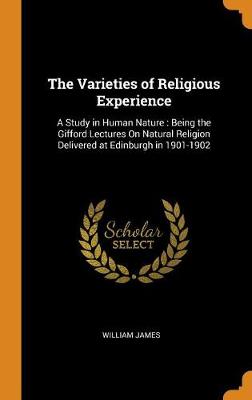Cambridge Library Collection - Philosophy
3 total works
Standing at the crossroads of psychology and religion, this catalyzing work applied the scientific method to a field abounding in abstract theory. William James believed that individual religious experiences, rather than the precepts of organized religions, were the backbone of the world's religious life. His discussions of conversion, repentance, mysticism and saintliness, and his observations on actual, personal religious experiences - all support this thesis. In his introduction, Martin E. Marty discusses how James's pluralistic view of religion led to his remarkable tolerance of extreme forms of religious behaviour, his challenging, highly original theories, and his welcome lack of pretension in all of his observations on the individual and the divine.
"It is absolutely the only philosophy with no humbug in it," an exhilarated William James wrote to a friend early in 1907. And later that year, after finishing the proofs of his "little book," he wrote to his brother Henry: "I shouldn't be surprised if ten years hence it should be rated as 'epoch-making,' for of the definitive triumph of that general way of thinking I can entertain no doubt whatever-I believe it to be something quite like the protestant reformation."
Both the acclaim and outcry that greeted Pragmatism: A New Name for Some Old Ways of Thinking helped to affirm James's conviction. For it was in Pragmatism that he confronted older philosophic methods with the "pragmatic" method, demanding that ideas be tested by their relation to life and their effects in experience. James's reasoning and conclusions in Pragmatism have exerted a profound influence on philosophy in this century, and the book remains a landmark.
Both the acclaim and outcry that greeted Pragmatism: A New Name for Some Old Ways of Thinking helped to affirm James's conviction. For it was in Pragmatism that he confronted older philosophic methods with the "pragmatic" method, demanding that ideas be tested by their relation to life and their effects in experience. James's reasoning and conclusions in Pragmatism have exerted a profound influence on philosophy in this century, and the book remains a landmark.
The Will to Believe addresses several of the most important and perplexing problems of philosophy. In ten lucid essays James deals with such subjects as causality and free will, the definition of the good life and the Good itself, the importance of the individual in society, and the intellectual claims of scientific method. Linking all these essays, most of which were delivered as lectures to popular audiences, is James's deep belief that philosophy does not operate in a vacuum but is influenced by our passional and volitional natures.
As Edward H. Madden points out in his substantial introduction, these essays, written over a span of seventeen years, represent not so much a fixed system of ideas as a patient searching, an organic development of James's thought in response to his own criticism and that of others.
This is the sixth volume to be published in The Works of William James, an authoritative edition sponsored by the American Council of Learned Societies.
As Edward H. Madden points out in his substantial introduction, these essays, written over a span of seventeen years, represent not so much a fixed system of ideas as a patient searching, an organic development of James's thought in response to his own criticism and that of others.
This is the sixth volume to be published in The Works of William James, an authoritative edition sponsored by the American Council of Learned Societies.


